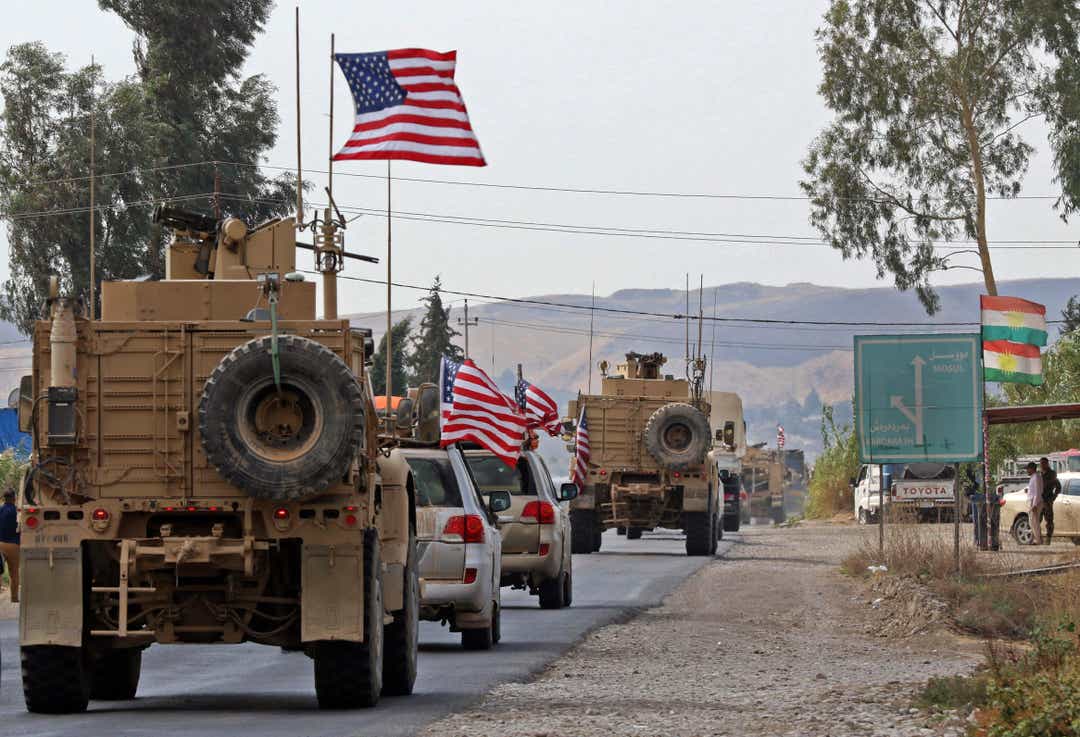US withdrawal adds more fuel to Syria conflict

For years, Syria enjoyed an eerie serenity as its people lived in fear of being picked up by one of the country’s four competing security services. In March 2011, the arrest of 15 students changed this dynamic and an uprising against the Baathist regime erupted. Now, however, a conflict that began with the demands of the Syrian people to live in a fair and just society could not have deviated further. With the Turkish incursion into the north of the country this month, the war took on a new front. A war that was once understood to be a fight between regional proxies has morphed into an incredibly confusing situation, exposing the world’s most important geopolitical fault lines.
The most stirring outcome of the conflict is no doubt the death of hundreds of thousands of people and the displacement of millions. A war that started with small-scale protests has resulted in the creation of 6.7 million refugees and a further 6.2 million internally uprooted. The horrendous conflict quickly turned into a regional one, with rival Middle Eastern powers intervening at different levels to secure their own geopolitical goals. Their involvement heralded the dawn of a new extremist threat — mainly represented by the Al-Nusra Front (the Syrian branch of Al-Qaeda) and Daesh — that considerably modified the country’s political balance, lowering the chances of Bashar Assad leaving. In fact, arguably the sole beneficiary of this conflict has been Assad’s regime, which has largely succeeded in imposing itself as a binary alternative to the threat of an extremist movement. However, given the regime’s growing reliance on foreign militias and the fact it had been checked in the north of the country, the US decision to withdraw this month left many aghast, as it effectively handed over hard-won strategic advantages on a whim.
Though the US president displayed characteristic nonchalance at the fate of millions and maintaining any semblance of America’s place in the world, he was — in refusing to commit US forces — conforming to type and his pronounced policies of limiting US exposure to foreign conflict. In rather callously announcing, “let someone else fight over this long-bloodstained sand,” Donald Trump simultaneously abandoned his Kurdish allies, deeply unsettled the NATO alliance that has bound Turkey and the US together for decades, and completely reconfigured Syria’s war map. However, Trump’s foreign policy has been clear from the start — his “America First” mandate described the world in almost exclusively economic terms.
In getting to grips with US policy on Syria, the real geostrategic calamity was not Trump’s haste in abandoning his allies; Washington’s lack of clarity on Syria is an inherited problem, as opposed to being a result of the current president’s haphazard approach to foreign policy. The US was caught off guard by the so-called Arab Spring and its response was tempered by the Obama administration’s lack of interest in projecting US power. In failing to engage and weigh in on global issues, the US was left without a role in slowing Syria’s descent into the violent state it finds itself in today.
Obama’s failure to enforce his own red line to authorize the use of military force in response to Assad’s use of chemical weapons was a huge geostrategic miscalculation.
Zaid M. Belbagi
In many respects, Barack Obama’s failure to enforce his own red line to authorize the use of military force in response to Assad’s use of chemical weapons was a huge geostrategic miscalculation that gave Russia carte blanche to take up the superpower mantle in the region. In losing the strategic advantage, the US has constantly lacked the ability to influence events in Syria, which was only magnified by the Kurdish question. As the Russian and Turkish leaders met in Sochi and agreed a plan that would see them take over the territory US-backed Kurdish forces controlled until this month, how little input the US really has on events on the ground was all too clear.
The Trump administration’s lack of a coherent policy illustrates how US influence in the Middle East has drastically waned and, amid the mayhem, Russia has emerged as one of the foremost winners, welcoming with open arms its new role as a key powerbroker between Syria and Turkey. The US president’s refusal to get heavily involved is, in many respects, based on a reluctance to commit US arms and troops to Middle Eastern wars. However, in the process, the region’s security complex has been completely reconfigured.
The sectarian tensions, hollowed-out state institutions and displacement of people that rocked the US in Iraq has been recreated in Syria. Western — particularly American — reluctance to use force in the region has aggravated the phenomenon. It has strengthened the illegitimate and criminal Syrian regime’s strategy to destroy the opposition and contributed, due to a lack of strong leadership, to the rebellion’s fragmentation and radicalization. The concern is not as to whether the Americans will have a place at the negotiating table, the issue is rather whether there will be a negotiated peace at all.
- Zaid M. Belbagi is a political commentator, and an adviser to private clients between London and the Gulf Cooperation Council (GCC). Twitter: @Moulay_Zaid









































